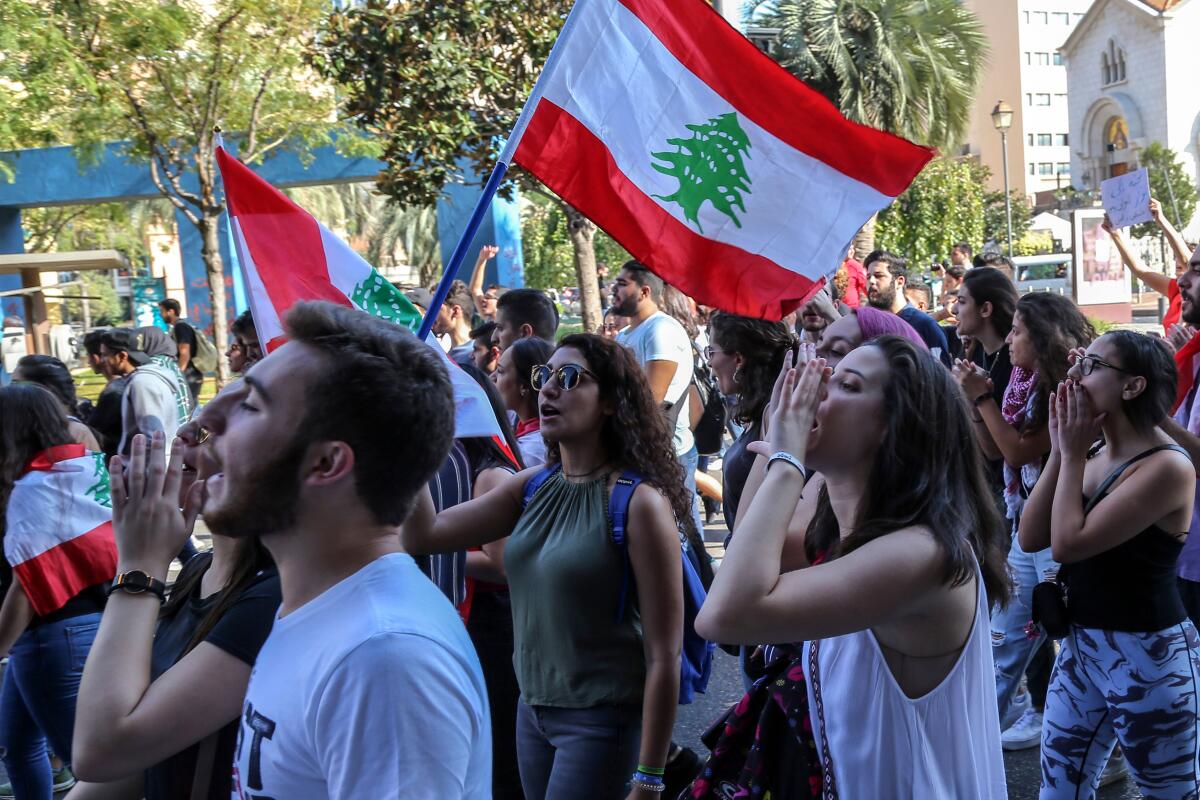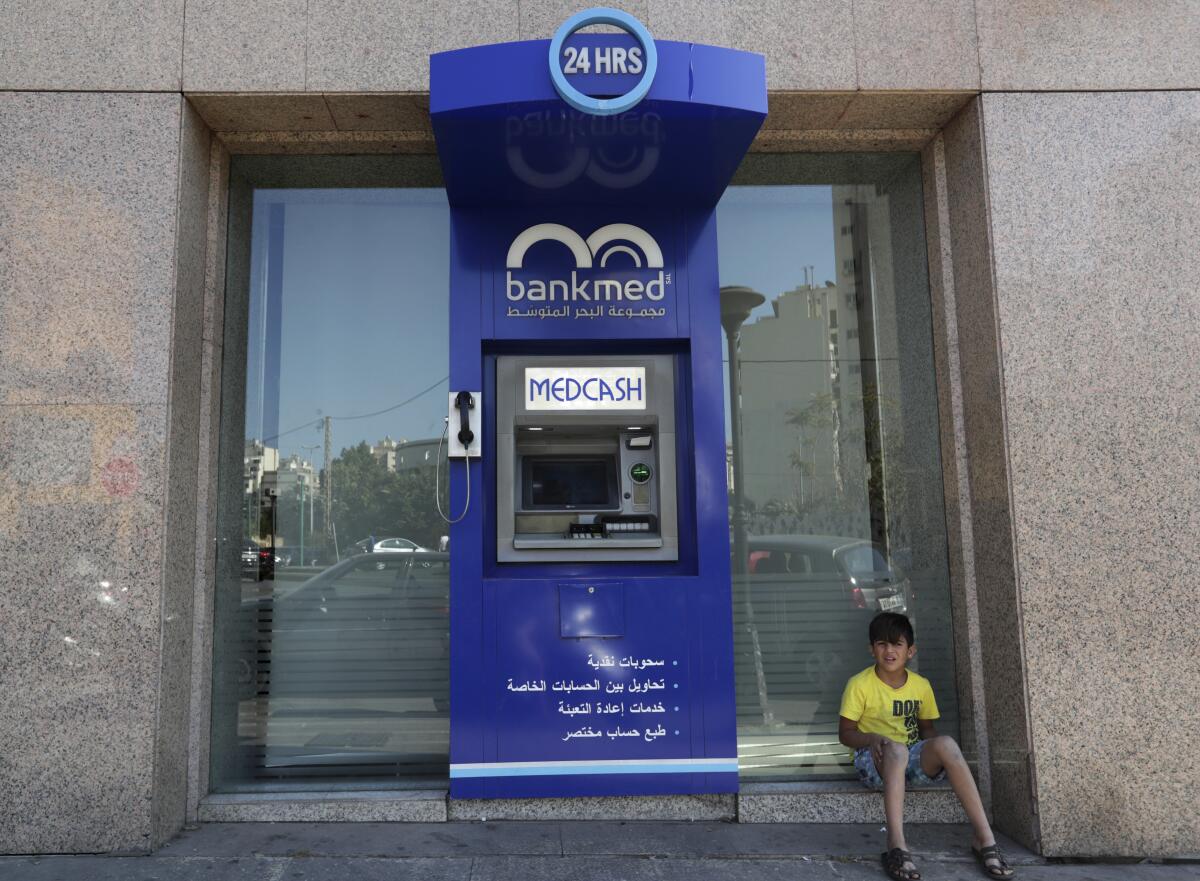As Lebanon’s unrest continues, fears grow for its currency

- Share via
BEIRUT — One recent Saturday in Souq al Ahad, a ramshackle flea market that springs up every weekend under a highway bridge in East Beirut, an antique dealer recoiled as a customer counted off Lebanese pounds to pay for a small bag of trinkets.
“If you’re paying in pounds, the price is more,” he said. “We’re just not getting U.S. dollars at the normal exchange rate.”
The customer handed over some more bills.
Three weeks of unrest, with a quarter of Lebanon’s 4 million people protesting to demand an overhaul of the government, has renewed fears for the national currency.


For the last 22 years, its value has been pegged by the government at 1,507.5 pounds per U.S. dollar, a rate widely regarded as sacrosanct to Lebanon’s stability after a 15-year civil war that ended in 1990.
Even before the massive demonstrations shattered the government of Prime Minister Saad Hariri, a shortage of dollars and dismal economic conditions had nudged the exchange rate to as high as 1,850 on the black market.
Now there are questions about the peg itself and how it underpinned the country’s much-lauded financial system while making the economy look much better than it was actually performing.
Billions of dollars in remittances sent by rich Lebanese expatriates have long kept the country’s balance of payments in the black, even though Lebanon exports very little.
When the 2011 Arab Spring protests sparked economic turmoil, the central bank dealt with deficits by using ever higher interest rates to keep the dollars coming.
But instead of using those dollars to invest in a productive economy, the government used them to preserve the peg, even as it inflated the purchasing power of the Lebanese, who spent their salaries on imports with the assumption there were foreign currency reserves to honor the country’s obligations.
Worse, the unemployment rate of up to 40% has spurred many educated young people to find good jobs abroad and send remittances back home to replenish the system anew.
But with reserves quickly disappearing, critics accuse the central bank of engaging in a sort of Ponzi scheme, with depositors facing the prospect that their dollars are simply gone.
In recent days, there has been a dash for dollars. Currency traders juggle a deluge of phone call and walk-in inquiries about the day’s exchange price. Customers haggle daily with supermarket clerks over prices that are elevated because of withering confidence in the pound. And suppliers, unable to convert their pounds into dollars to pay for goods from abroad, have had their shipments impounded in Beirut’s port.
Meanwhile, banks, which open sporadically and are forced to exchange pounds at the official exchange rate, hoard dollars by warding off account holders who demand to withdraw money in hard currency or transfer it abroad.
The measures have enraged clients, with some showing up in branches with guns and threatening staff, according to the head of Lebanon’s bank employees union, which on Monday called for a general strike in response to the mounting abuse.
A growing chorus of bankers, politicians and economic experts has called for the central bank to impose capital controls, prioritize necessities when it comes to imports, or reduce interest payments for the biggest deposit holders. The central bank has to move quickly, they say, to avert a blitz devaluation.
There were already glimpses of the disarray such a scenario could bring. For weeks, gas stations had threatened to shut down because they could not get enough dollars to buy fuel; on Monday, the state-run National News Agency said gas stations across the country were either rationing gas or shutting down outright.
But there has been no sign the central bank will shift its strategy. In a news conference Monday, its governor, Riad Salameh, said the bank had $30 billion in reserves.
Its liabilities, however, are estimated to be over $170 billion, and some of the deposits are set to be redeemed later this month.
Nevertheless, Salameh assured the public there would be no capital controls or reductions in interest payments.
The central bank’s “main and first aim,” Salameh said, would be to preserve the Lebanese pound.
More to Read
Sign up for Essential California
The most important California stories and recommendations in your inbox every morning.
You may occasionally receive promotional content from the Los Angeles Times.











